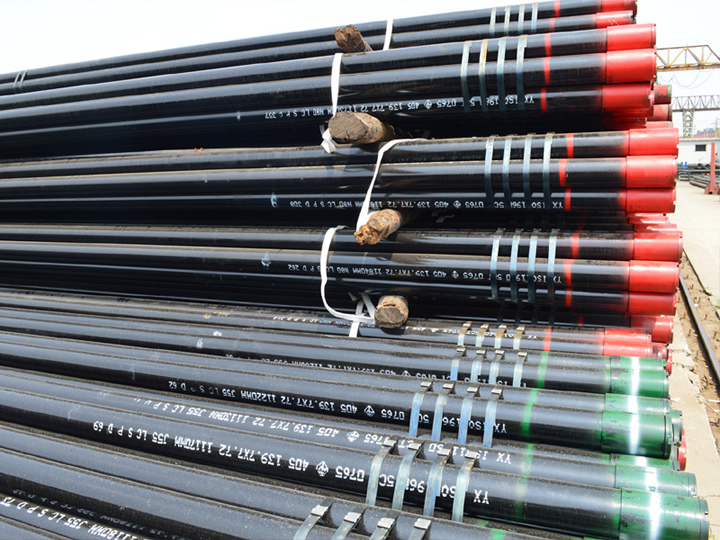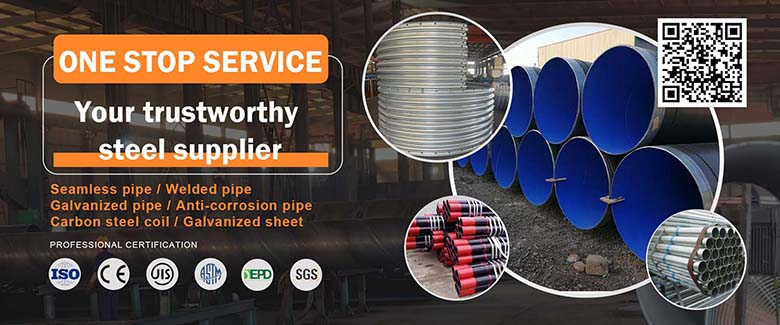Welcome to Yangtze Steel Group !
WhatsApp:+86 13863585577 E-mail : sales@yangtzepipe.com
Differences Between Oil Casing and API Tubing: A Professional Selection Guid
In the petroleum industry, the correct selection of tubular products directly impacts the safety and economic efficiency of drilling operations. Many customers often confuse the concepts of oil casing and API tubing. This article will provide a detailed analysis of their differences to help you make more precise procurement decisions.

Definition and Scope
Oil Casing
A large-diameter tubular product designed for specific applications, primarily used to reinforce the walls of oil and gas wells or wellbores. Serving as the “skeleton” of the wellbore, it supports the well wall to prevent collapse, ensuring safe drilling operations and normal production after well completion. Based on location and function, it can be categorized into types such as pilot casing, surface casing, technical casing, and production casing.
API Tubing
is the general term for pipeline products manufactured according to operational specifications established by the American Petroleum Institute. API standards encompass all pipeline types used in the petroleum industry, including but not limited to drill pipes, tubing, casing, and line pipes. Essentially, API standards serve as the universal “language” and quality assurance for the petroleum tubular goods industry.
Core Distinction Analysis
Differing Conceptual Levels
API pipe represents a standard system, while petroleum casing is a specific product manufactured under this system. This relationship is analogous to “food standards” versus “bread”—one denotes guidelines and specifications, the other a concrete product.
Differences in Application Scope
Oil casing is exclusively used for wellbore reinforcement as a disposable consumable, accounting for over 70% of all oil well tubular consumption. API tubular encompasses broader applications, potentially spanning all phases from drilling to production.
Technical Specification Requirements
Oil casing possesses specialized performance requirements:
Multiple steel grades: From J55, K55 to V150 and other strength levels
Superior crush resistance: Withstands formation pressure in complex geological conditions
Outstanding corrosion resistance: Maintains structural integrity in corrosive environments
Precision threading: Ensures leak-tight and reliable casing connections
Key Procurement Considerations
When selecting oil casing, prioritize the following:
Certification Qualifications
Ensure products carry complete API certification, the fundamental quality assurance.
Operational Suitability
Select appropriate steel grades and specifications based on well conditions:
Shallow wells: J55, K55 grades
Medium-to-deep wells: N80 or L80 grades recommended
Ultra-deep wells and special conditions: High-strength grades like P110 or Q125
Special Treatment Requirements
For corrosive environments, consider specialized materials or coating treatments. We offer L80 series corrosion-resistant casing and specialized coating services to meet diverse complex operational demands.
Technical Service Support
A reputable supplier should provide comprehensive technical support, including:
- String design and optimization recommendations
- Technical guidance for well operations
- Rapid response to on-site quality issues
Conclusion
Accurate understanding of the distinction between oil casing and API tubulars enables buyers to select suitable products more precisely. As a professional steel trading supplier, we not only provide high-quality oil casing compliant with API standards but also deliver customized product solutions tailored to specific client operating conditions. Our technical team stands ready to provide detailed product consultations and technical support.

Oil casing,API pipe,Pipeline products
Previous Page
Previous Page
RELATED NEWS
Data Experts From the Alibaba Headquarters Came to Provide Guidance
Today, Ms. Peng, a senior data operations expert from Alibaba International Station headquarters, visited our company and provided special guidance on the optimization of Alibaba International Station store operations.
2025
06-17
On-Site Quality Check: Enhancing Partnership with Customers
On-Site Quality Check: Enhancing Partnership with Customers
2025
05-19
2024
11-20


